
Top stories






More news
















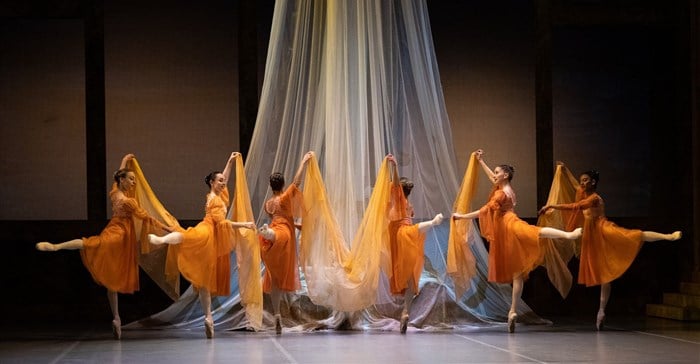
My mother and her sisters studied ballet in Johannesburg under Faith de Villiers, one of the pioneers of South African ballet.
As a teenager, my aunt progressed through the ranks to the point where she was competing for attention with the late prima ballerina assoluta Phyllis Spira. My grandmother sewed costumes. My family moved to the Eastern Cape in the 70s and 80s, where we saw extracts of classical ballets when CAPAB Ballet was on tour – probably to recorded music and scant sets. My point? I’ve never seen a local ballet production as spectacular as Cape Town City Ballet’s Romeo and Juliet.
I was reminded that in the ‘90s, when I was reviewing dance for the daily press in Durban, I became more familiar with Ashley Killar’s version of the ballet. To say that Veronica Paeper’s choreography is a treat is an understatement.
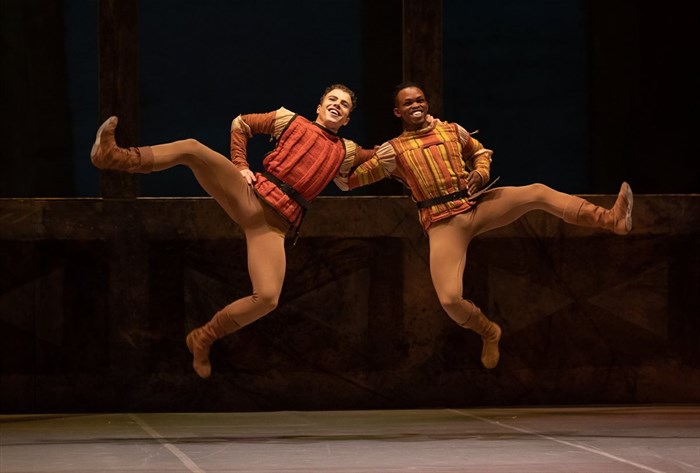
But it was the splendour of the set that impressed me first. Both costumes and set, lovingly restored for the company’s Winter Season under Cazelet’s watchful eye, are out of this world. Widely acknowledged for his “creativity, understanding and commitment in keeping with the true period and style of each ballet”, he and Paeper took a bow during opening night curtain calls to tumultuous applause.
Unsurprisingly, my guest waxed lyrical about the lighting. Wilhelm Disbergen is an award-winning lighting designer, who is a veritable wizard when it comes to lighting works for artists locally and abroad.
Since Debbie Turner was appointed Cape Town City Ballet CEO in 2018, she has left no stone unturned in guiding the company towards an international standard. The transformation since I last saw them perform, before lockdown, is phenomenal.
Granted, the cast for this season includes company members, seasonal artists, guest artists and apprentices with international talent from England, Namibia, Brazil, Holland, but they have gelled as though they are a full company.
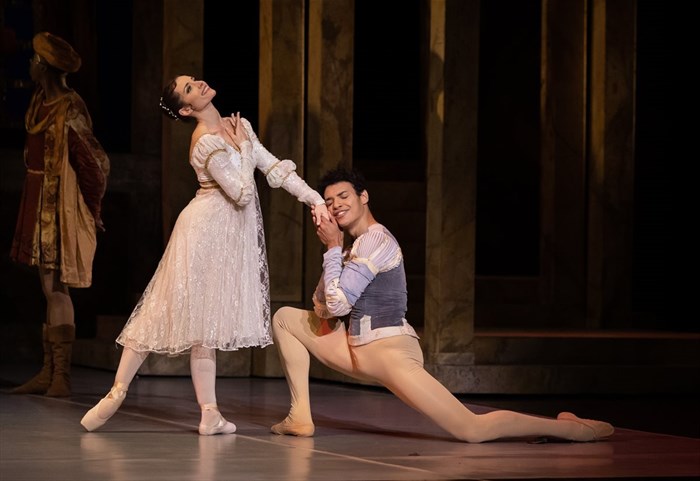
I imagine students studying Shakespeare’s play will fall in love with it after seeing this production. It’s not just the action that’s memorable, it’s the acting that makes the story more relatable. It makes the difference between good and great in ballet. And because Patrick Collings has been teaching fencing techniques for the fight scenes, I wouldn’t be surprised if it sparks a sudden interest in the sport. The skill and focus with which the male cast members tackle these scenes is mesmerising.
As for Brazilian Lêusson Muniz and Cape Town City Ballet principal Kirstel Paterson – where does one even start? Muniz has been working with the company since 2020, and the two paired up previously for Veronica Paeper’s ‘Angel’, but Paterson’s first season back after maternity leave was for ‘Giselle’ in March this year. Muniz and Paterson have a magical connection that shines through every movement, every line, and every look.
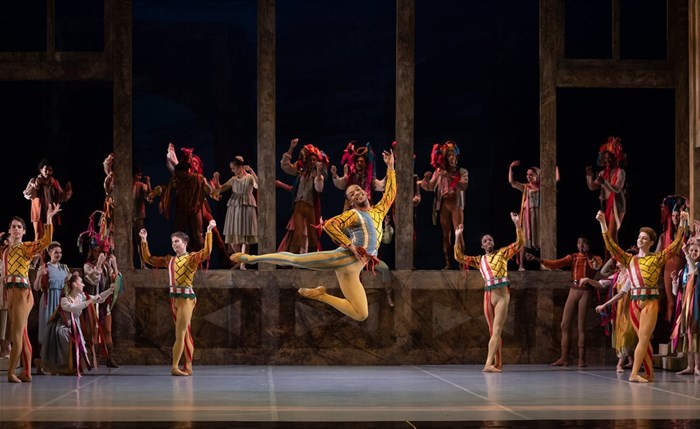
Muniz soars through the air when he leaps, landing surefootedly every time, matching Paterson’s poise and grace with aplomb. They are natural in their roles, which again says a lot for their acting ability. It makes their characters and therefore performances more believable, enabling the audience to relax and lose themselves in the emotion of the moment.
Quinton Jacobs (Namibia) as Tybalt, fiercely solidifying the feud between the Capulets and Montagues and Nicolas Laubscher (apprentice) as Mercutio, Romeo’s friend and confidant who links the comic and violent action of the play, were incredible in their roles too.
The programme notes that Sergei Prokofiev wrote the three-act ballet score in Russia in 1936 “perfectly fitted to Shakespeare’s narrative finding the melodies: powerful, utterly romantic, heart-wrenchingly expressive, and orchestrating it brilliantly”.
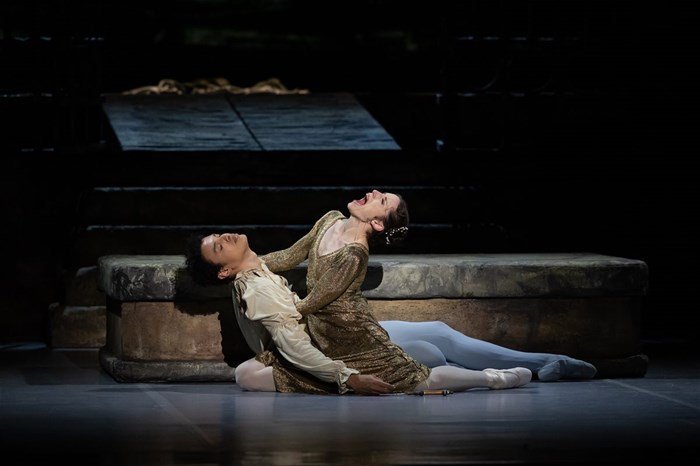
Jonathan Lo, the Hong Kong-born Briton hailed by Dance Europe as “without doubt, the greatest ballet conductor we have in the UK” will conduct the Cape Town Philharmonic Orchestra (CPO) at performances of Romeo and Juliet on 8, 9, 10 and 13 August at 7.30pm.
Meanwhile, acclaimed CPO resident conductor Brandon Phillips, who also conducted the German National Youth Orchestra at the Beethoven Festival in Bonn in 2019 and a world premiere by American percussionist Marcus Gilmore at the Rolex Arts Weekend in 2020, will conduct the performances on 23, 25 and 28 August.
Theatre patrons have a rare opportunity to see Siphe November, the principal artist of the National Ballet of Canada, as Romeo opposite Chanté Daniels as Juliet only on 25 August.
This season also features principal guest artists Fumi Kaneko (Japan) and Vadim Muntagirov (Russia) from The Royal Ballet and Brandon Lawrence (Britain) from Birmingham Royal Ballet in the starring roles.
Tickets are available here.
